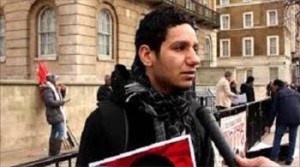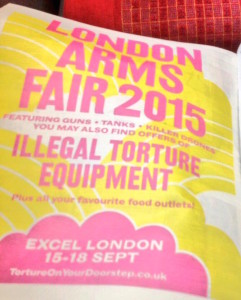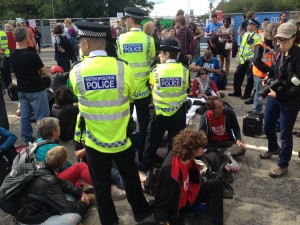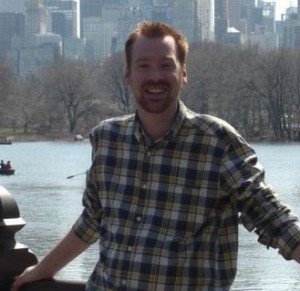Guest post by Tom Underwood
The 14th of February 2016 marks the fifth anniversary of the pro-democracy uprising in the kingdom of Bahrain. Whilst the Arab Spring movement in countries such as Tunisia, Egypt and Libya made headlines the small island of Bahrain remained mainly under the radar despite the fierce crackdown on peaceful protest.
I first came across Bahrain through meetng the Bahraini human rights activist Sayed Ahmed Alwadaei. Sayed was one of hundreds of thousands of peaceful protestors (according to his own estimation about forty percent of the population) calling for democracy and an end to discrimination against the Shia’s by the ruling Sunni royal family. The response from government authorities was brutal. Sayed was severally beaten leaving a permanent scar across his forehead. He was imprisoned for six months during which time he was regularly beaten, sexually harassed and tortured. Finally, he was given two choices; stay in Bahrain and remain in prison or leave the country he loves. In July 2012 he claimed asylum in the UK.
response from government authorities was brutal. Sayed was severally beaten leaving a permanent scar across his forehead. He was imprisoned for six months during which time he was regularly beaten, sexually harassed and tortured. Finally, he was given two choices; stay in Bahrain and remain in prison or leave the country he loves. In July 2012 he claimed asylum in the UK.
Unfortunately, Sayed’s experiences are not unique and human rights abuses continue to be prevalent in Bahrain. In a recent article about the five year anniversary of the uprising James Lynch from Amnesty International writes, “Today in Bahrain, anyone who dares to criticise the authorities – whether a human rights defender or political activist – risks punishment.”
Despite all of this British arms sales to Bahrain have increased significantly during the past five years. Sayed first became aware of this link between the UK and Bahrain when after being attacked with tear gas he collected up the canisters and found that they were all made in the UK. Over the past five years the UK has sold arms worth £45 million to Bahrain. This doesn’t include the impact of British arms sales to Saudi Arabia who were brought in to crush peaceful demonstrations by the Bahraini government.

 In September 2015 I joined with others to protest outside the Excel Centre in East London as it hosted DSEI, the largest arms fair in the world. On that day Sayed was one of many international speakers, all from countries where the UK sells arms despite oppressive human rights regimes. Many of these speakers used the word ‘solidarity’ to describe the impact of us standing alongside them in their struggle for human rights.
In September 2015 I joined with others to protest outside the Excel Centre in East London as it hosted DSEI, the largest arms fair in the world. On that day Sayed was one of many international speakers, all from countries where the UK sells arms despite oppressive human rights regimes. Many of these speakers used the word ‘solidarity’ to describe the impact of us standing alongside them in their struggle for human rights.
The word ‘solidarity’ has tricky connotations in the UK, conjuring up images of Citizen Smith and Che Guevara berets. Outside of Catholic social teaching Christendom has not embraced the word despite the positivity of it’s message of unity and support. However, at the centre of Christianity is the incarnation, God’s declaration of solidarity with the world. God does not stand separate from creation but physically enters into the messiness of flesh and blood, standing with us, close to us and part of us. This is what ‘solidarity’ means for us as Christians. In the words of Dietrich Bonhoeffer:
“And in the Incarnation the whole human race recovers the dignity of the image of God. Henceforth, any attack even on the least of men is an attack on Christ, who took the form of man, and in his own Person restored the image of God in all that bears a human form. Through fellowship and communion with the incarnate Lord, we recover our true humanity, and at the same time we are delivered from that individualism which is the consequence of sin, and retrieve our solidarity with the whole human race. By being partakers of Christ incarnate, we are partakers in the whole humanity which he bore. We now know that we have been taken up and borne in the humanity of Jesus, and therefore that new nature we now enjoy means that we too must bear the sins and sorrows of others. The incarnate Lord makes his followers the brothers of all mankind.”
Within this quote I’m struck by the phrase “Bearing the sorrows of others,” as a beautiful realisation of solidarity. Just as the incarnation is physical so too this idea of solidarity must be physical for us and lead us away from ‘clicktavism’ and ‘best wishes’ to a muscular activism where we stand, protest, and march with Sayed and others recognising that through the incarnation God has made us brothers of all mankind.
 Tom Underwood teaches young people with autism and writes plays about peace. He is currently writing about peace activism and arms trade activists. He worships at Raynes Park Community Church and tweets @tomcunderwood
Tom Underwood teaches young people with autism and writes plays about peace. He is currently writing about peace activism and arms trade activists. He worships at Raynes Park Community Church and tweets @tomcunderwood
